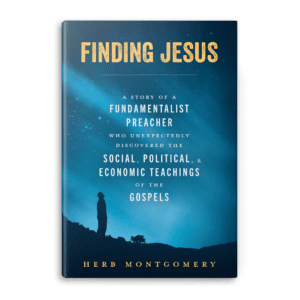
Other than these two cases, Jesus interpreted the Torah like a Hillelian Pharisee. The conflicts between Jesus and the Pharisees in the gospels are the same conflicts the Hillelian Pharisees had with the Shammai Pharisees. In those years, the Shammai Pharisees were still in positions of power and influence. But ultimately the more progressive Hillelian Pharisees won the interpretive debates in Judaism: out of Hillelian Pharisaism, Rabbinic Judaism eventually emerged and grew. (See Karen Armstrong’s The Great Transformation: The Beginning of Our Religious Traditions, Kindle Locations 7507-7540)
Welcome Readers! Please subscribe to Social Jesus Here.
(Read this series from the beginning at Part 1 and Part 2.)
Gamaliel, in the book of Acts, was also most likely a Pharisee from the more progressive school of Hillel.
“But a Pharisee named Gamaliel, a teacher of the law, who was honored by all the people, stood up in the Sanhedrin and ordered that the men be put outside for a little while.” (Acts 5:34)
Acts associates the Apostle Paul with Gamaliel, too:
“I am a Jew, born in Tarsus of Cilicia, but brought up in this city. I studied under Gamaliel and was thoroughly trained in the law of our ancestors. I was just as zealous for God as any of you are today.” (Acts 22:3)
Paul also expresses a very Hillelian way of interpreting the Torah in the book of Galatians:
“For the entire law is fulfilled in keeping this one command: ‘Love your neighbor as yourself.’” (Galatians 5:14)
All of this taken together makes a strong case for a more progressive form of Christianity that uses love as its interpretive lens. In this form of Christianity, we ensure that our interpretations of love don’t become sentimental or meaningless, and we manifest love through concern for a distributive justice for others. As Dr. Emile Townes so rightly states when you begin with the idea that God loves everyone, justice isn’t very far behind.
This speaks volumes in the context of debates still raging between more fundamentalist and/or conservative sectors of Christianity and more progressive and/or liberal sectors. The early Jesus movement evolved during similar tensions, and the gospels characterize Jesus as siding with the more compassionate Pharisees of his time.
As we shared earlier, there are exceptions to this. The two times Jesus departs from the Hillel Pharisees to side with the Shammai Pharisees was over economic justice issues. This says to me that the highest value was compassion. The highest value is distributive justice, treating one’s neighbor as yourself, as an extension of yourself, as you yourself would like to be treated if you were in the same situation. If we are to follow the Jesus of the gospels, we will find ourselves siding with those calling for a politics of compassion and distributive justice. We will find ourselves doing so because our chief concern is love of neighbor and justice for our neighbor as we would want for ourselves.
Political parties don’t always get justice right because they also are endeavoring to balance the desire to stay in power. One party might most often get it right, but where they fail, we must still choose to stand on the side of distributive justice, remembering the goal is love of neighbor. Following Jesus, we may find ourselves most often in more harmony with political positions of compassion, but there will be times when we may be achieving compassion in one area but will have to be honest when we are still missing the mark in another. There are discussions like this between feminists and womanists. I also think of wealthy LGBTQ people who support systemic harm toward those in their community who are poor; Christians who are concerned for the poor but still deeply patriarchal, homophobic, biphobic, and transphobic And there are movements for economic justice, including within White Christianity, that are still deeply racist.
In the end, for me, it’s no longer enough to say that God is love. If our ideas of God’s love doesn’t also address love of neighbor in very real, concrete, material ways, then we are still missing the mark. In the spirit of the interpretive lens of Hillel and Jesus, as Paul said: “The entire law is fulfilled in keeping this one command: ‘Love your neighbor as yourself.’”
 Herb’s new book, Finding Jesus: A story of a fundamentalist preacher who unexpectedly discovered the social, political, and economic teachings of the Gospels, is now available at Renewed Heart Ministries.
Herb’s new book, Finding Jesus: A story of a fundamentalist preacher who unexpectedly discovered the social, political, and economic teachings of the Gospels, is now available at Renewed Heart Ministries.














